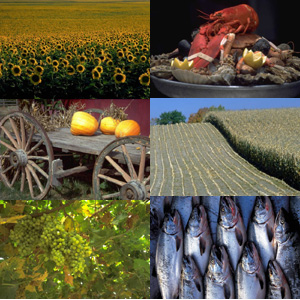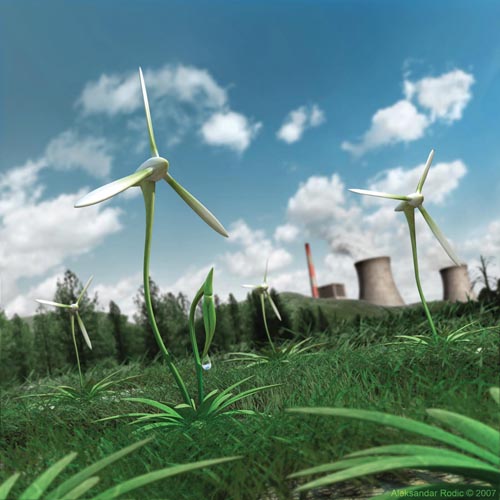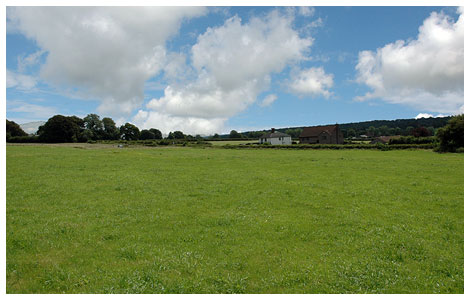Задание 2 (англ). Energy b land
 Скачать 392 Kb. Скачать 392 Kb.
|
|
UNIT 6 RESOURCE SAVING Assignment 1 Everybody knows that there are such natural resources as minerals, energy, land, water and biota. Take a look at the following pictures displaying natural resources (A-E) and match them with the names. A_Energy B Land C Biota    D Minerals E Water   Assignment 2 Scan the article and find answers for the questions. 1. How many Earth’s resources do people consume nowadays? What are they? ALMOST one-quarter of nature's resources are being gobbled up by a people. 2. What is the result of this consumption? The result is a gradual depletion of species and habitats 3. What are the most reasonable ways of solving the problem of ravening resources? We need to ease our dependence on fossil fuels Earth suffers as we gobble up resources ALMOST one-quarter of nature's resources are being gobbled up by a single species, and it's not difficult to guess which one. Based on figures for the year 2000, the most recent available, humans appropriate 24 per cent of the Earth's production capacity that would otherwise have gone to nature. The result is a gradual depletion of species and habitats as we take more of their resources for ourselves. Things could get even worse if we grow more plants like palm oil and rapeseed for biofuels to ease our reliance on fossil fuels. That is the message from a team led by Helmut Haberl of Klagenfurt University in Vienna, Austria. Haberl and colleagues analysed UN Food and Agriculture Organization data on agricultural land use in 161 countries covering 97,4 per cent of farmland. By comparing carbon consumption through human activity with the amount of carbon consumed overall, Haberl's team found that humans use some 15.6 trillion kilograms of carbon annually. Half was soaked up by growing crops. Another 7 per cent went up in smoke as fires lit by humans, and the rest was used up in a variety of other ways "Things could get even worse if we grow more plants like palm oil and rapeseed for biofuels to ease our reliance on fossil fuels" related to industrialisation, such as transport [Proceedings of the National Academy of Sciences]. Haberl says that the Earth can just about cope if we meet future needs by producing food more efficiently. This could be done by intensifying agriculture on roughly the same amount of land as we use now. But we're asking for trouble, he says, if we expand production of biofuels, as the only fertile land available is tropical rainforests. "If we want full-scale replacement of fossil fuels by biofuels, this would have dramatic implications for ecosystems," says Haberl. He warns that some projections foresee four or fivefold increases in biofuel production. "This would at least double the overall amount of biomass harvested, which is about 30 per cent above ground at present, but would increase to 40 or 50 per cent to meet these biofuel targets," he says. This would mean clearing what remains of the world's rainforests in countries such as Brazil and Argentina. As well as wiping out thousands of species, this would have devastating effects on the climate, he says. Unlike farmland, forests help to seed rainfall because they have high evaporation rates. "The less evaporation there is, the less rainfall there is and the whole system dries up," he says. Andy Coghlan 7 July 2007/NewScientist/15 Земля страдает, когда мы поглощаем ресурсы Почти четверть природных ресурсов сейчас поглощается одним видом - людьми. Согласно последним данным за 2000 год, люди используют 24% производственных мощностей Земли, которые в противном случае ушли бы на природу. Результатом является постепенное истощение видов и местообитаний, поскольку мы забираем больше их ресурсов для себя. И все может стать еще хуже, если мы будем выращивать больше растений, таких как пальмовое масло и рапс, для производства биотоплива, чтобы уменьшить нашу зависимость от ископаемого топлива. По сообщению команды, под руководством Хельмута Хаберла из Клагенфуртского университета в Вене, Австрии, и его коллеги проанализировали данные Продовольственной и сельскохозяйственной организации ООН об использовании сельскохозяйственных земель в 161 стране, покрывающих 97,4 процента поверхности суши. Сравнивая потребление углерода в результате деятельности человека с общим количеством потребляемого углерода, команда Хаберла обнаружила, что люди ежегодно используют 15,6 триллиона килограммов углерода. Другие 7 процентов превратились в дым от пожаров, зажженных людьми , а остальные были использованы для различных целей «Положение может стать еще хуже если мы будем выращивать больше растений, таких как пальмовое масло и рапс, для производства биотоплива, чтобы уменьшить нашу зависимость от ископаемого топлива.» связанных с индустриализацией, таких как транспорт. Хаберл говорит, что Земля сможет почти справиться, если мы будем удовлетворять будущие потребности за счет более эффективного производства продуктов питания. Это можно сделать за счет интенсификации производства на используемых сейчас землях. Но мы напрашиваемся на проблемы, говорит он, если мы расширяем производство биотоплива, поскольку единственная доступная плодородная земля - это тропические леса. «Если мы захотим полномасштабную замену ископаемого топлива биотопливом, это будет иметь драматические последствия для экосистем», - говорит Хаберл. Он предупреждает, что по некоторым прогнозам производство биотоплива увеличится в четыре или пять раз. «Это как минимум удвоит общее количество собираемой биомассы, которое в настоящее время составляет около 30 процентов над землей, но увеличится до 40 или 50 процентов для достижения этих целей по биотопливу»- говорит он. Это означало бы расчистку остатков тропических лесов в таких странах, как Бразилия и Аргентина. Он утверждает, что это не только уничтожит тысячи видов, но и окажет разрушительное воздействие на климат. В отличие от сельхозугодий, леса способствуют посеву дождевых осадков, поскольку обладают высокой скоростью испарения. «Чем меньше испарения, тем меньше осадков и вся система высыхает», - говорит Хаберл. Энди Коглан 7 июля 2007/Новый ученый/15 Assignment 3 Fill in the gaps with the words from the list below. Use the words only once. Make up your own sentences with these phrases. oil, replacement, figures, production, fuels, depletion, devastating, reliance, implications, fires, tropical, targets 1) based on figures 2) gradual depletion of species and habitats 3) palm oil 4) to ease reliance on 5) fossil fuels 6) fires lit by humans 7) to expand production of biofuels 8) tropical rainforests 9) full-scale replacement 10) dramatic implications for ecosystems 11) to meet the biofuel targets 12) devastating effects on the climate Assignment 4 Choose the words from the box and fill in the gaps. valuable, petroleumextraction, renewable, coal, tax on consumption, raw materials, natural,forestry, fossil fuels, natural gas Natural resources (economically referred to as land or 1_raw) are naturally forming substances that are considered 2 valuable in their relatively unmodified (3 natural) form. Thus, mining, 4 petroleum extraction, fishing, hunting and 5 forestry are generally considered natural-resource industries. Natural resources are mostly classified into 6 renewable and non-renewable resources. Sometimes resources are classified as non-renewable even if they are technically renewable, just not easily renewed within a reasonable amount of time, such as 7 fossil fuels. Some non-renewable resources can be renewable but take an extremely long time to renew. Fossil fuels, for example, take millions of years to form and so are not practically considered 'renewable'. Different non-renewable resources like oil, 8 coal, 9 natural gas etc. have different levels of demand from different sectors like transportation and residences with each resource specializing for each sector. Many environmentalists propose a 10 tax on consumption of non renewable resources. Non-renewable resources cannot be replaced or can only be replaced over thousands or millions of years. Assignment 5 Use the words given in capitals to fulfill the spaces.
1 REASONABLY 2. EXPLORING 3. CONSIDERABLE 4. PRODUCTS 5. EFFICIENCY 6. COMPETITION 7 STRICTER 8. INNOVATION 9 COMPETITIVE 10. FRIENDLY |
